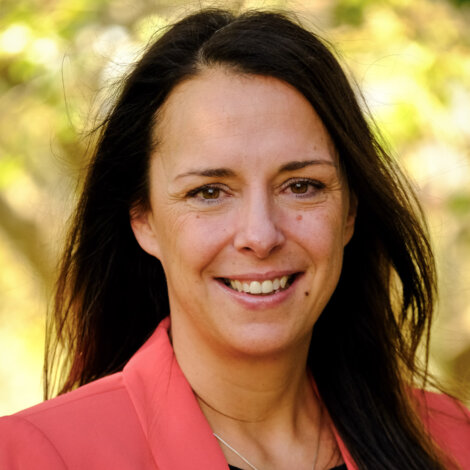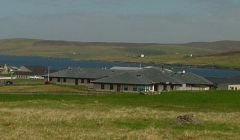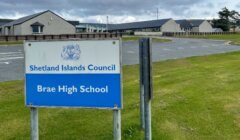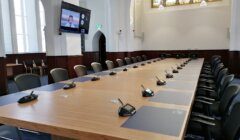Education / ‘Multitude of reasons’ behind rise in ASN numbers, meeting hears
A RISE in the number of school pupils with additional support needs (ASN) in Shetland is putting “significant” demand on the council workforce – with a “multitude of reasons” said to be behind the increase.
A report presented to members showed that in 2023/24 38.5 per cent of primary pupils in Shetland had additional support needs, up by two per cent on the previous year. This is above the national average of 30.4 per cent.
For secondary pupils the percentage in 2023/24 was 42.7 per cent, which was slightly down on the previous year and just shy of the national average.
The matter was raised at a meeting of the full Shetland Islands Council on Tuesday as a children’s services directorate plan for the next few years was presented to elected members.
Children’s services director Samantha Flaws said there was significant demand on the ASN service.
It comes at a time when the message from the council’s top brass is that the SIC as a whole continues to face rising demand for services, coupled with increased costs and recruitment challenges.
A review of ASN services in Shetland is planned.
The council’s website says Shetland schools offer a wide range of support to help children learn, from adapting work to suit their ability and time with ASN staff to assistance from a speech and language therapist and changing working spaces.
At Tuesday’s meeting North Isles councillor Robert Thomson asked about the reasons behind the growth in numbers, which Flaws describing it as “exceptionally complex” with many reasons at play.
One example she gave was under fives, with health visitors seeing more issues around speech, language and early communication difficulties at milestone checks.
Become a member of Shetland News
She suggested the children being born during Covid lockdowns and the pandemic could be a factor behind this – a time when social activity was limited.
Flaws said similarly there could potentially be a link to the pandemic and an increase in issues with mental health and anxiety.
But she said there was also “certainly something around more and more diagnosis and more awareness and more access to services to get support”.
However, Flaws stressed the increase in ASN was not only a local matter.
“It’s not just here in Shetland, it’s across the country,” she told councillors.
The rise in ASN numbers has prompted the SIC to look to recruit to a new depute head teacher position at the Anderson High School in Lerwick.
Regarding the review of ASN services, Flaws said: “I think we’ve got to the point where we really need to sort of set out exactly what we think we need to do moving forward.
“We’ve got a small working group established to think about the terms of reference for that, and the extent to which we need to look at the way that we’re delivering and meeting the needs of our children and young people.”
Flaws said there will be various elements to consider, including workforce planning, making sure profiles and specifications for employees are reflective of the jobs they are being asked to do, and how best to meet the needs of young folk.
Documents presented to councillors showed that this financial year the SIC is predicting to spend £8.862 million on ASN, which is more than £400,000 above what was initially budgeted.
The budget for the ASN and educational psychology service in 2025/26 will be around £9 million.
In debate at Tuesday’s meeting Shetland South councillor Alex Armitage, who also works as a paediatrician, said he felt the national school system as it stands does not benefit certain people.
He said many young people have “huge potential”, but they feel the school system does not cater to their aptitudes.
Armitage said the current system is “often indoors, desk based and sedentary” – particularly in secondary – and may not benefit those with an inclination towards outdoors and practical activity.
“I believe that this system creates winners and losers,” he said, before adding that the education system should be diversified to cater for a neurodiverse population of young people.
But the Green councillor said Shetland is “ahead of the game” and referenced college courses for pupils in the later secondary years as well as the Bridges Project, which supports people aged between 14 and 19 and aims to improve confidence, self-esteem, employability skills and qualifications.
Lerwick South member John Fraser said he understood Armitage’s views but warned the setting of the national curriculum is beyond the power the council chamber.
He added that there are “phenomenal activities” on offer in Shetland outwith the curriculum of the schools.
Shetland South councillor Bryan Peterson also highlighted the skills for work programme, which has practical elements – but said there can be difficulties with getting young folk out and about in the winter due to the weather.
Meanwhile Dennis Leask, who represents Lerwick South, believed there could be less behavioural issues in schools if there were more practical activities on offer.
Become a member of Shetland News
Shetland News is asking its readers to consider paying for membership to get additional perks:
- Removal of third-party ads;
- Bookmark posts to read later;
- Exclusive curated weekly newsletter;
- Hide membership messages;
- Comments open for discussion.
If you appreciate what we do and feel strongly about impartial local journalism, then please become a member of Shetland News by either making a single payment, or setting up a monthly, quarterly or yearly subscription.











































































